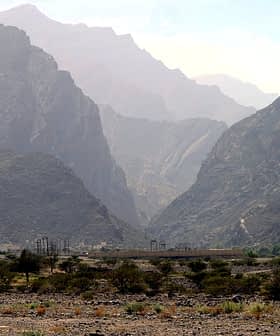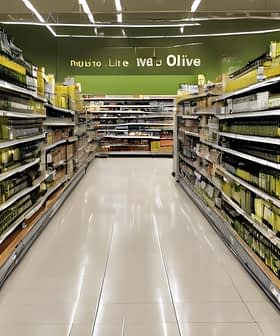Herzegovian Farmer Looks to Keep Momentum After New York Win
The Skegro Family Winery is paving the way for high-quality extra virgin olive oil production in Bosnia and Herzegovina.
Krš extra virgin olive oil bears the name of the crop-unfriendly karst terrain from which it originates.
Yet, for more than 25 years, the Škegro Family Winery (Vinarija obitelji Škegro) has been producing highly appreciated wines from three autochthonous grape varieties – Žilavka, Blatina and Trnjak – in Ljubuški, a town in the West Herzegovina Canton of Bosnia and Herzegovina.
We work together, with a strong sense of collaboration.
Wide strips of unexploited land, which until three years ago had been used to separate the different plots of land for vine cultivation, became the ideal setting to grow olive trees and create a new agro-food excellence.
Hence, Krš gave Bosnia and Herzegovina the opportunity to join the ranks of the best extra virgin olive oil producing countries, thanks to the Gold Award received at the last NYIOOC World Olive Oil Competition — the first recognition for this country in the world’s most important olive oil contest.
See Also:Olive Oil Fairs and Competitions“We are a small family company with a great deal of experience in wine production,” Bariša Škegro told Olive Oil Times. “At one point, we felt the need to evolve and try new things, always in line with our high standards of quality. On our land, there were a bunch of olive trees, which had been planted by my grandfather, and this is where our new adventure started.”
Eager to develop new products, and deeply linked to Mediterranean food culture, the family company turned its attention to the increasingly attractive sector of high-quality extra virgin olive oil, and 300 trees were added to the original group.
“Over the next five years, we are going to plant another 200 or 300 olive trees,” Škegro said, specifying that for the first phase of their olive oil plan, they chose four varieties from neighboring countries.
“We planted Oblica, the most widespread variety in Croatia, along with Pendolino, Leccino, and Cipressino from Italy,” Škegro added.
Škegro farm, which is located in the hills of Ljubuški at 360 to 720 feet above sea level and just 18.6 miles from the Adriatic coast, has the ideal soil and weather conditions to promote the growth of these cultivars.
Oblica is used both for olive oil and table olive production, as it is characterized by big spherical, slightly asymmetrical fruits.
“This variety has a good yield,” Škegro said. “In general, over the first two years of production, we had a satisfactory outcome in terms of volume and quality.”
At the beginning of last harvest, the olives were in great shape, also thanks to the irrigation that was done during summer, in order to mitigate the effects of a hot season. Very high temperatures and severe drought experienced over the last few years has led producers in the region to take precautions against these kinds of climate issues.
Pendolino, Leccino and Oblica in proportions of 30 percent each, along with 10 percent of Cipressino, allowed the Škegro family to obtain a great medium fruity blend.
“We are so satisfied about the result at the NYIOOC, because it was the first time we participated, and we immediately obtained an important recognition,” Škegro said, adding that this was possible thanks to the work of all of the members of the family.
“We work together, with a strong sense of collaboration, following all the production process, and we are ready for another successful season in the name of the extra virgin olive oil,” he added.








